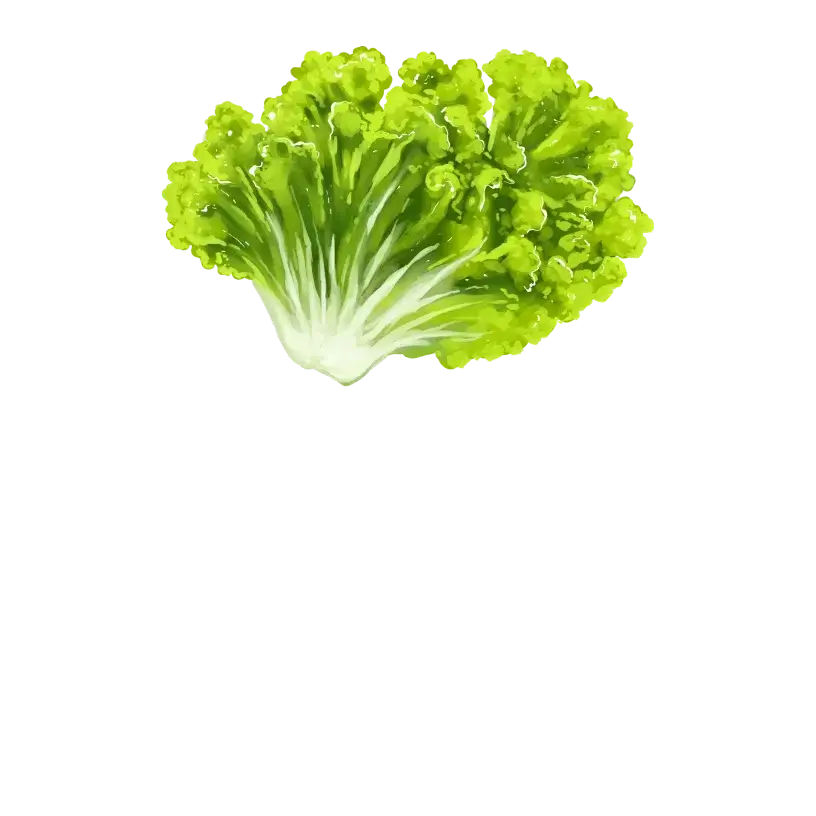Menu

When you’re expecting, you’re more likely to get dehydrated for several reasons. Pregnancy represents a significant phase and you may often experience dehydration due to increased sweating, frequent urination, bowel movements, and morning sickness, particularly if you live in an environment with warmer climates.
Hydration is always crucial, but it becomes especially vital during pregnancy. According to a research on Water needs during pregnancy, higher fluid intake is required to support foetal circulation, amniotic fluid, and increased blood volume. It also assists in building new tissue, carrying nutrients, aiding digestion, and eliminating waste and toxins.
The American College of Obstetricians and Gynecologists (ACOG) recommends that expecting mothers drink up to 8 to 12 cups (64 to 96 ounces) of water every day.
Maintaining proper hydration is crucial at all times, but it becomes particularly vital during pregnancy. Adequate water intake during pregnancy offers numerous advantages, promoting a normal and safe childbirth.
Staying hydrated is crucial for a healthy pregnancy journey. Water plays a key role in many bodily processes, including the formation of amniotic fluid. This fluid acts as a protective cushion around your baby in the womb, shielding them from harm and aiding their development. Enough amniotic fluid is particularly important for the growth of your baby’s lungs and for safeguarding them from physical impacts or injuries.
Dehydration increases the risk of urinary tract infections (UTIs), preterm contractions, and low amniotic fluid levels. Additionally, dehydration can worsen common pregnancy discomforts, like constipation and dizziness. Drinking enough water can significantly reduce these risks and support a healthier pregnancy for you and your baby.
Staying hydrated is essential for regulating body temperature, especially for pregnant women more prone to overheating, particularly in hot weather or during physical activity.
Drinking enough water can help your body maintain a stable temperature, reducing the risk of overheating and associated complications like heat exhaustion or heatstroke. So, keeping up with your hydration is key to staying cool and comfortable during pregnancy, especially when the temperature rises or you’re active.
Water plays a critical role in pregnancy by transporting essential nutrients from you to your developing baby through the placenta. Staying properly hydrated ensures that important vitamins, minerals, and oxygen reach your baby, supporting their healthy growth and development. So, keep up with your hydration to give your baby the best start.
Hydration helps keep a good amount of blood flowing through your body while you’re pregnant. This ensures that both you and your baby get enough oxygen and nutrients. Plus, it lowers the chances of having problems like preeclampsia or high blood pressure during pregnancy. So, staying hydrated is a simple way to help keep you and your baby healthy.
Staying hydrated can help ease common discomforts such as swelling, bloating, and morning sickness. By staying hydrated, your body can flush out excess sodium and waste products, reducing swelling and bloating.
Additionally, adequate hydration can lessen the severity of morning sickness by diluting stomach acids. So, keeping up with your water intake can make these pregnancy discomforts more manageable and help you feel more comfortable throughout your pregnancy.
Research indicates that insufficient hydration is associated with a higher risk of preterm birth. By staying well-hydrated during pregnancy, you can decrease premature labour and delivery chances. This gives your baby a better opportunity to fully develop before being born. So, keeping up with your hydration can play a role in supporting a healthy pregnancy and ensuring the best outcomes for your baby.
Staying hydrated is crucial for a healthy pregnancy journey. Water plays a key role in many bodily processes, including the formation of amniotic fluid. This fluid acts as a protective cushion around your baby in the womb, shielding them from harm and aiding their development. Enough amniotic fluid is particularly important for the growth of your baby’s lungs and for safeguarding them from physical impacts or injuries.
Dehydration increases the risk of urinary tract infections (UTIs), preterm contractions, and low amniotic fluid levels. Additionally, dehydration can worsen common pregnancy discomforts, like constipation and dizziness. Drinking enough water can significantly reduce these risks and support a healthier pregnancy for you and your baby.
Staying hydrated is essential for regulating body temperature, especially for pregnant women more prone to overheating, particularly in hot weather or during physical activity.
Drinking enough water can help your body maintain a stable temperature, reducing the risk of overheating and associated complications like heat exhaustion or heatstroke. So, keeping up with your hydration is key to staying cool and comfortable during pregnancy, especially when the temperature rises or you’re active.
Water plays a critical role in pregnancy by transporting essential nutrients from you to your developing baby through the placenta. Staying properly hydrated ensures that important vitamins, minerals, and oxygen reach your baby, supporting their healthy growth and development. So, keep up with your hydration to give your baby the best start.
Hydration helps keep a good amount of blood flowing through your body while you’re pregnant. This ensures that both you and your baby get enough oxygen and nutrients. Plus, it lowers the chances of having problems like preeclampsia or high blood pressure during pregnancy. So, staying hydrated is a simple way to help keep you and your baby healthy.
Staying hydrated can help ease common discomforts such as swelling, bloating, and morning sickness. By staying hydrated, your body can flush out excess sodium and waste products, reducing swelling and bloating.
Additionally, adequate hydration can lessen the severity of morning sickness by diluting stomach acids. So, keeping up with your water intake can make these pregnancy discomforts more manageable and help you feel more comfortable throughout your pregnancy.
Research indicates that insufficient hydration is associated with a higher risk of preterm birth. By staying well-hydrated during pregnancy, you can decrease premature labour and delivery chances. This gives your baby a better opportunity to fully develop before being born. So, keeping up with your hydration can play a role in supporting a healthy pregnancy and ensuring the best outcomes for your baby.
When you’re pregnant, your body is more prone to issues like swelling, urinary tract infections, constipation, and haemorrhoids. If you’re also dehydrated, the risk of experiencing these problems becomes even higher. Not staying properly hydrated throughout your pregnancy can also increase your chances of:
Braxton-Hicks contractions: Braxton-Hicks contractions, often called “false labour,” are primarily caused by dehydration. Even slight dehydration can trigger these contractions. So, staying well-hydrated is crucial to help prevent or alleviate Braxton-Hicks contractions during pregnancy.
Overheating: During pregnancy, the increased blood volume in your body can make you feel warmer than usual. Not drinking enough water can make it even harder for your body to regulate your temperature and keep you comfortable. This can lead to overheating, which can be uncomfortable and potentially risky for you and your baby.
Headaches: Headaches during pregnancy can be quite common, but staying hydrated can help prevent them. When you’re pregnant, your body’s needs change, and ensuring you’re well-hydrated can alleviate headaches. It’s essential to note that pregnancy headaches can sometimes be a symptom of a serious condition called preeclampsia, so it’s crucial to pay attention to any unusual symptoms and consult your healthcare provider if you have concerns.
Kidney stones: Kidney stones can be particularly uncomfortable during pregnancy, but one of the best ways to prevent them is by ensuring you drink enough fluids daily. Adequate hydration helps dilute your urine, reducing the risk of mineral buildup leading to kidney stones.
Drinking plenty of water and other fluids can help maintain healthy kidney function and lower the likelihood of experiencing kidney stones during pregnancy.
Oligohydramnios: Reduced amniotic fluid, medically known as oligohydramnios, can lead to concerns such as umbilical cord compression during pregnancy. However, drinking plenty of water may help increase the amount of amniotic fluid present.
Adequate hydration supports the body’s natural processes, including producing and maintaining amniotic fluid levels. By staying well-hydrated, you can potentially mitigate the risk of having low amniotic fluid and its associated complications, ultimately supporting a healthier pregnancy for you and your baby.
Low birth weight: Research has revealed that chronic dehydration during pregnancy can impact the weight and size of babies at birth, including their head and chest circumference. This means that inadequate hydration throughout pregnancy may contribute to low birth weight in newborns.
Feeling thirsty is typically the first sign of dehydration. If you feel thirsty after sweating, being in hot environments for extended periods, or going without water for a while, you may be dehydrated. Other signs to watch out for include:
Before you go to bed, fill up a water bottle and put it in the fridge. Then, when you wake up in the morning, you’ll have cold water ready to drink, making it easier to start your day hydrated. You can also fill up a few water bottles and put them in different spots around your house. That way, no matter what you’re doing, you’ll always have water nearby to remind you to take regular sips and stay hydrated.
Instead of waiting until you’re thirsty to drink water, set reminders on your phone to prompt you to drink throughout the day. This will help you avoid dehydration and ensure you’re consistently hydrating your body. These reminders can also help you establish a regular drinking schedule, making it easier to meet your daily hydration goals and maintain your overall health and well-being.
Enhance the taste of your water by adding a slice of lemon, cucumber, mint, or a few berries. This simple trick adds a refreshing flavour and encourages you to drink more water throughout the day. Plus, it’s a healthy way to switch up your hydration routine and enjoy variety.
Treat yourself to a new water bottle or some reusable straws to make drinking water more enjoyable. Choose ones that reflect your personality and style, letting your uniqueness shine. Spending around $20 or so on these items could significantly affect how much water you drink throughout the day.
Place it on your desk, bedside table, or anywhere else you spend time during the day. Having it visible and easily accessible makes it a simple choice to take a sip whenever you need to hydrate. This way, you’re more likely to drink water consistently throughout the day without thinking twice about it.
Pregnancy already means frequent trips to the bathroom. However, by sipping water slowly, your body can absorb it better, reducing the likelihood of sudden urges to pee. So, take it easy and sip your water slowly—you’ll thank me later for the tip.
What gets measured gets improved.” If you’re committed to increasing your fluid intake, keeping track of how much you’re drinking is essential. Whether you prefer a digital app or a simple pen and paper, the method doesn’t matter if it works for you. By monitoring your water intake, you’ll be able to see your progress and make adjustments as needed to ensure you’re meeting your hydration goals.
Before you go to bed, fill up a water bottle and put it in the fridge. Then, when you wake up in the morning, you’ll have cold water ready to drink, making it easier to start your day hydrated. You can also fill up a few water bottles and put them in different spots around your house. That way, no matter what you’re doing, you’ll always have water nearby to remind you to take regular sips and stay hydrated.
Instead of waiting until you’re thirsty to drink water, set reminders on your phone to prompt you to drink throughout the day. This will help you avoid dehydration and ensure you’re consistently hydrating your body. These reminders can also help you establish a regular drinking schedule, making it easier to meet your daily hydration goals and maintain your overall health and well-being.
Enhance the taste of your water by adding a slice of lemon, cucumber, mint, or a few berries. This simple trick adds a refreshing flavour and encourages you to drink more water throughout the day. Plus, it’s a healthy way to switch up your hydration routine and enjoy variety.
Treat yourself to a new water bottle or some reusable straws to make drinking water more enjoyable. Choose ones that reflect your personality and style, letting your uniqueness shine. Spending around $20 or so on these items could significantly affect how much water you drink throughout the day.
Place it on your desk, bedside table, or anywhere else you spend time during the day. Having it visible and easily accessible makes it a simple choice to take a sip whenever you need to hydrate. This way, you’re more likely to drink water consistently throughout the day without thinking twice about it.
Pregnancy already means frequent trips to the bathroom. However, by sipping water slowly, your body can absorb it better, reducing the likelihood of sudden urges to pee. So, take it easy and sip your water slowly—you’ll thank me later for the tip.
What gets measured gets improved.” If you’re committed to increasing your fluid intake, keeping track of how much you’re drinking is essential. Whether you prefer a digital app or a simple pen and paper, the method doesn’t matter if it works for you. By monitoring your water intake, you’ll be able to see your progress and make adjustments as needed to ensure you’re meeting your hydration goals.
About 20% of your body’s water comes from your food, so increasing your intake of foods with high water content can help you stay hydrated. These foods, which contain between 90% and 100% water, include:

Watermelon is an excellent hydrating fruit containing approximately 92% water. In addition to its hydrating properties, watermelon is packed with essential nutrients such as vitamins A, C, and B6. These vitamins support overall health and are particularly beneficial during pregnancy. Including watermelon in your diet can help keep you hydrated while providing a refreshing and nutritious snack.

Yogurt is a great source of calcium and contains a significant amount of water. Opting for plain or low-sugar varieties ensures you get hydration benefits without the added sugars.

Cucumbers are incredibly hydrating, as they contain about 95% water. This makes them an excellent choice for a refreshing snack or as an addition to salads. Including cucumbers in your diet can help you meet your hydration goals while providing a crunchy, hydrating option that’s low in calories.

These leafy greens are primarily composed of water, making them excellent choices for hydration during pregnancy. They are not only hydrating but also packed with essential nutrients vital for a healthy pregnancy. Incorporating lettuce and spinach into your diet can help you stay hydrated while providing important vitamins and minerals for your and your baby’s well-being.

Strawberries, raspberries, and blueberries are all rich in water content, making them ideal for snacking or adding to your breakfast. These juicy berries not only provide hydration but also offer a burst of flavour and essential nutrients. Incorporating these fruits into your diet can help you stay hydrated while enjoying a delicious and nutritious snack or meal addition.

Watermelon is an excellent hydrating fruit containing approximately 92% water. In addition to its hydrating properties, watermelon is packed with essential nutrients such as vitamins A, C, and B6.
These vitamins support overall health and are particularly beneficial during pregnancy. Including watermelon in your diet can help keep you hydrated while providing a refreshing and nutritious snack.

Yogurt is a great source of calcium and contains a significant amount of water. Opting for plain or low-sugar varieties ensures you get hydration benefits without the added sugars.

Cucumbers are incredibly hydrating, as they contain about 95% water. This makes them an excellent choice for a refreshing snack or as an addition to salads. Including cucumbers in your diet can help you meet your hydration goals while providing a crunchy, hydrating option that’s low in calories.

These leafy greens are primarily composed of water, making them excellent choices for hydration during pregnancy. They are not only hydrating but also packed with essential nutrients vital for a healthy pregnancy. Incorporating lettuce and spinach into your diet can help you stay hydrated while providing important vitamins and minerals for your and your baby’s well-being.

Strawberries, raspberries, and blueberries are all rich in water content, making them ideal for snacking or adding to your breakfast. These juicy berries not only provide hydration but also offer a burst of flavour and essential nutrients.
Incorporating these fruits into your diet can help you stay hydrated while enjoying a delicious and nutritious snack or meal addition.
According to Pregnancy Dietician, Water is undoubtedly the top choice for hydration, but if you’re tired of plain water, plenty of other liquids can keep you hydrated:
It is usually recommended to choose cow’s milk for its nutritional benefits, but soy milk or pea milk are also good options. While nut and oat milk are popular, they aren’t as nutrient-rich. However, they still count towards your fluid intake.
Coffee and tea can contribute to your daily fluid intake but it’s important to moderate your caffeine intake. Consider opting for decaffeinated fruit and herbal teas, which can be enjoyed either hot or cold.
Hydration is an additional benefit of Bone Broth, which happens to be one of the good sources of glycine—a nutrient that becomes particularly important during pregnancy. Consider having a soup made with bone broth as a hydrating meal option. This way, you not only enjoy the nourishing qualities of the broth but also help maintain your hydration levels, contributing to your overall well-being during pregnancy.
With the rise in popularity of Flavoured and Sparkling Water, there are now more options than ever to stay hydrated. Additionally, infused water is a great alternative to plain water. You can enhance the flavour by adding ingredients like the core of a pineapple, fresh mint, berries, or cucumbers. If you’re experiencing nausea, consider adding a piece of ginger or citrus to your infused water for a refreshing and soothing drink.
Research has shown that morning sickness affects around 70% of pregnant individuals, and being less hydrated can exacerbate nausea. To stay hydrated when you’re feeling queasy, consider the following tips:
During pregnancy, water is incredibly important for both you and your baby. Your baby is surrounded by amniotic fluid, which is primarily composed of water. Your body also relies on water for many functions. Drinking enough water can improve digestion, prevent constipation, reduce swelling, relieve headaches and muscle cramps, and regulate body temperature. It also helps eliminate toxins from your body through urine and reduces the risk of preterm labour.
So, remember to drink plenty of water throughout your pregnancy to stay healthy and support your baby’s development.
During pregnancy, experts recommend drinking between 8 to 12 cups of fluids daily, roughly equivalent to drinking 64 to 96 ounces of water, or about the amount found in a few 16.9-ounce water bottles. Your water needs can also be based on the number of calories you eat. Typically, adults require about 1 to 1.5 millilitres of water for each calorie consumed.
As your pregnancy progresses, your body’s water needs increase gradually. In the early stages, you may not need much more water, but paying attention to your intake is important, especially if you’re experiencing morning sickness. Sipping on water or ginger ale can help replace fluids lost from vomiting.
During the second and third trimesters, your fluid needs rise along with your calorie requirements. In the second trimester, you should aim to consume an extra 340 calories per day, which means you’ll need about 11.5 extra ounces of water. In the third trimester, with an additional 450 calories daily, you’ll need about 15 extra ounces of water.
According to the NHS, consuming fizzy drinks that are high in sugar, like tonic water during pregnancy, isn’t necessarily harmful. Still, they can be high in calories and contribute to weight gain.
Since these drinks offer little nutritional value, limiting their intake or exploring healthier alternatives is generally best. Sparkling water, which doesn’t contain sugar, can be a good substitute if you’re not fond of plain water. It provides the fizziness you may crave without the added sugars, making it a healthier choice during pregnancy.
While dehydration is more commonly discussed, it’s important to be aware that overhydration can also pose risks, especially for individuals with certain health conditions such as heart problems, kidney problems, liver problems, or thyroid disease, according to WebMD.
Additionally, medications like certain antidepressants, opiate pain medications, and non-steroidal anti-inflammatory drugs (NSAIDs) can lead to water retention and increase the risk of overhydration. Therefore, you must consult your doctor to determine the appropriate amount of water intake during pregnancy.
It’s safe to drink hot water during pregnancy and can offer several benefits. Drinking hot water can help boost metabolism, aid digestion, promote weight loss, and increase energy levels. Consuming hot water on an empty stomach may enhance fat burning and contribute to managing body weight.
Additionally, hot water can aid in detoxifying the body and improving blood circulation, which is beneficial during pregnancy. Another advantage is that it may help alleviate morning sickness and heartburn, common discomforts experienced by pregnant individuals.
Furthermore, drinking hot water can support immune health by reducing the risk of viral sickness and infections. Incorporating hot water into your daily routine can provide various health benefits during pregnancy.
During pregnancy, water is incredibly important for both you and your baby. Your baby is surrounded by amniotic fluid, which is primarily composed of water. Your body also relies on water for many functions. Drinking enough water can improve digestion, prevent constipation, reduce swelling, relieve headaches and muscle cramps, and regulate body temperature. It also helps eliminate toxins from your body through urine and reduces the risk of preterm labour.
So, remember to drink plenty of water throughout your pregnancy to stay healthy and support your baby’s development.
During pregnancy, experts recommend drinking between 8 to 12 cups of fluids daily, roughly equivalent to drinking 64 to 96 ounces of water, or about the amount found in a few 16.9-ounce water bottles. Your water needs can also be based on the number of calories you eat. Typically, adults require about 1 to 1.5 millilitres of water for each calorie consumed.
As your pregnancy progresses, your body’s water needs increase gradually. In the early stages, you may not need much more water, but paying attention to your intake is important, especially if you’re experiencing morning sickness. Sipping on water or ginger ale can help replace fluids lost from vomiting.
During the second and third trimesters, your fluid needs rise along with your calorie requirements. In the second trimester, you should aim to consume an extra 340 calories per day, which means you’ll need about 11.5 extra ounces of water. In the third trimester, with an additional 450 calories daily, you’ll need about 15 extra ounces of water.
According to the NHS, consuming fizzy drinks that are high in sugar, like tonic water during pregnancy, isn’t necessarily harmful. Still, they can be high in calories and contribute to weight gain.
Since these drinks offer little nutritional value, limiting their intake or exploring healthier alternatives is generally best. Sparkling water, which doesn’t contain sugar, can be a good substitute if you’re not fond of plain water. It provides the fizziness you may crave without the added sugars, making it a healthier choice during pregnancy.
While dehydration is more commonly discussed, it’s important to be aware that overhydration can also pose risks, especially for individuals with certain health conditions such as heart problems, kidney problems, liver problems, or thyroid disease, according to WebMD.
Additionally, medications like certain antidepressants, opiate pain medications, and non-steroidal anti-inflammatory drugs (NSAIDs) can lead to water retention and increase the risk of overhydration. Therefore, you must consult your doctor to determine the appropriate amount of water intake during pregnancy.
It’s safe to drink hot water during pregnancy and can offer several benefits. Drinking hot water can help boost metabolism, aid digestion, promote weight loss, and increase energy levels. Consuming hot water on an empty stomach may enhance fat burning and contribute to managing body weight.
Additionally, hot water can aid in detoxifying the body and improving blood circulation, which is beneficial during pregnancy. Another advantage is that it may help alleviate morning sickness and heartburn, common discomforts experienced by pregnant individuals.
Furthermore, drinking hot water can support immune health by reducing the risk of viral sickness and infections. Incorporating hot water into your daily routine can provide various health benefits during pregnancy.
1. American College of Obstetricians and Gynecologists. How much water should I drink during pregnancy?
2. Cleveland Clinic. Braxton Hicks Contractions.
3. Cloudnine Care. What to Know About Drinking Water During Pregnancy.
4. Complete Women’s Care. Hydrating Foods and Drinks for Pregnancy: Staying Well-Hydrated and Safe.
5. Einarson, T.R., Piwko, C. and Koren, G., 2013. Quantifying the global rates of nausea and vomiting of pregnancy: a meta-analysis. Journal of population therapeutics and clinical pharmacology, 20(2).
6. Henderson S. A, Lenders C. M. Nutrition in pregnancy and lactation. 1999. In G. Morrison & L. Hark (Eds.), Medical nutrition and disease (2nd ed., pp. 61–75). Malden, MA: Blackwell Science
7. Medical News Today. Can dehydration affect pregnancy?
8.Mulyani, E.Y., Briawan, D., Santoso, B.I. and Jus’ At, I., 2021. Effect of dehydration during pregnancy on birth weight and length in West Jakarta. Journal of Nutritional Science, 10, p.e70.
9. NHS. Water, drinks and hydration.
10. Ovum Women and Child Specialist Hospital. The importance of staying hydrated during pregnancy.
11. S AL-SALAMI, K.H.I.L.U.D., 2007. Maternal hydration for increasing amniotic fluid volume in oligohydramnios. Basrah Journal of Surgery, 13(2), pp.59-62.
12. Song, Y., Zhang, F., Lin, G., Wang, X., He, L., Li, Y., Zhai, Y., Zhang, N. and Ma, G., 2023. A study of the fluid intake, hydration status, and health effects among pregnant women in their second trimester in China: A cross-sectional study. Nutrients, 15(7), p.1739.
13. The Pregnancy Dietitian.
14. UnityPoint Health. 10 Things no one Expects During a Summer Pregnancy.
15. University of Michigan Health: Kidney Stones in Pregnancy.
16. WebMD. What to Know About Drinking Water During Pregnancy.
© Mindsmaking 2024